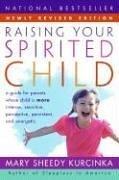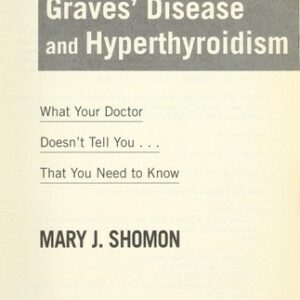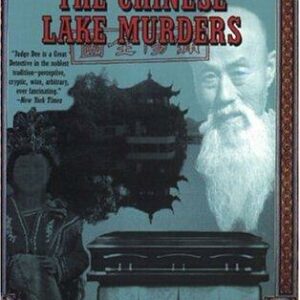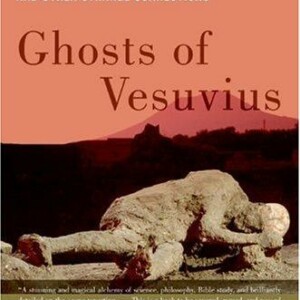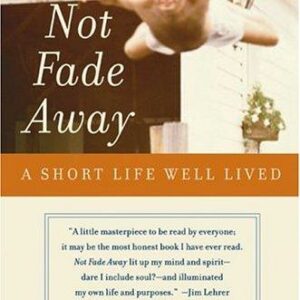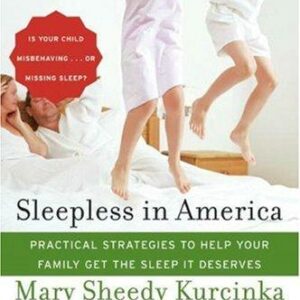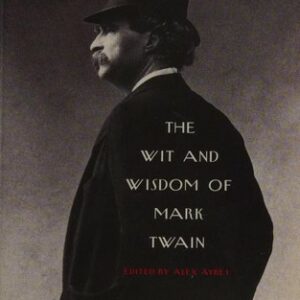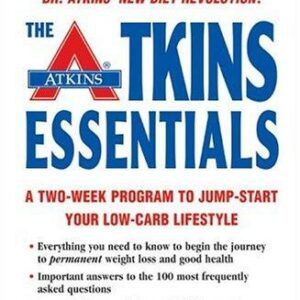Under Our Roof
$17.00
| Title | Range | Discount |
|---|---|---|
| Trade Discount | 5 + | 25% |
- Description
- Additional information
Description
A congresswoman and her son reveal how he survived a ten-year battle with opioid abuse—and what their family’s journey to recovery can teach us about finding hope amid the unspeakable.
“Beautiful and inspiring.”—Maria Shriver’s Sunday Paper (Book of the Week)When Madeleine Dean discovered that her son Harry was stealing from the family to feed a painkiller addiction, she was days away from taking the biggest risk of her life: running for statewide office in Pennsylvania. For years, she had sensed something was wrong. Harry was losing weight and losing friends. He had lost the brightness in his eyes and voice, changing from a young boy with boundless enthusiasm to a shadow of himself, chasing something she could not see. Now her worst fears had come to light.
Under Our Roof is the story of a national crisis suffered in the intimacy of so many homes, told with incredible candor through the dual perspectives of a mother rising in politics and a son living a double life, afraid of what might happen if his secret is exposed. In this honest, bracing, yet ultimately uplifting memoir, they discuss the patterns of a family dealing with an unspoken disease, the fear that keeps addicts hiding in shame, and the moments of honesty, faith, and personal insight that led to Harry’s recovery.
In a country searching for answers to the devastating effects of opioids and drug abuse, Under Our Roof is a ray of hope in the darkness. It is not only a love story between mother and son but also an honest account of a pressing national crisis by a family poised to make a difference. “A riveting and inspiring story of a family confronting addiction . . . Written with breathtaking courage and unadorned honesty, this account by Rep. Madeleine Dean and Harry Cunnane can help all families turn fear of this scourge into understanding, acceptance, and hope.”—Jennifer Palmieri, #1 New York Times bestselling author of Dear Madam President“Through their honesty and bravery, Dean and Cunnane challenge stigma, encourage a strengthening of support systems, and provide hope to the millions of Americans who live with, or have loved ones who live with, substance abuse disorder every day.”—Pennsylvania governor Tom Wolf and first lady Frances Wolf Madeleine Dean is the congresswoman for the Fourth District of Pennsylvania, suburban Philadelphia, a member of the House Judiciary and House Financial Services committees, and vice chair of the bipartisan Women’s Caucus. From 2012 to 2018 she served in the Pennsylvania House. From 2001 to 2011 she taught writing at La Salle University, and she has contributed to Newsweek, The Philadelphia Inquirer, Philadelphia Daily News, and other regional publications. She and her husband, PJ Cunnane, live in Jenkintown, Pennsylvania, and have three sons, two daughters-in-law, and three grandchildren.
Harry Cunnane has been an active member of the addiction recovery community since his recovery began more than seven years ago, participating in a twelve-step program and volunteering at rehabs and jails around Philadelphia to spread a message of hope. He now works as a resource director for the same treatment center where he originally sought help for his own addiction. He lives in Audubon, New Jersey, with his wife, Juliet; his daughter, Aubrey; and his son, Sawyer.
Madeleine and Harry are the authors of the children’s book You Are Always Loved. oneA House on FireMad
When my husband, PJ, is away, I sleep on his side of the bed, nearer the door, as if to stay at-the-ready through the night. One weeknight at about two in the morning, my cellphone rang on PJ’s nightstand. I didn’t know the number, but it appeared to be local.
For most people, a call in the middle of the night is reason for anxiety. For a worrier like me, those calls are a different kind of jolt—an excuse to race through every worst-case scenario I can muster. I hesitated. Did I want this surely bad news? Still, I reached for the nightstand and picked up the phone.
I worried about all my sons—Pat and Alex included—but Harry, the middle child, was different. Nothing was going well. His hygiene, the state of his room. Most of all, I fretted over the way he’d been changing ever since high school.
Six years earlier, Harry had bounced—I mean literally bounced—into St. Joseph’s Preparatory High School in Philadelphia. He was short for his age and young for his grade, yet larger than himself in enthusiasm. At 103 pounds, he went out for the football team as a freshman and made it. Everyone makes it in the first year. But once he got there, Harry became the life and the heart of the team.
Then things began to change. Friends changed, and so did his habits. After four years, the boy who’d bounded through the doors of high school nearly had to be dragged across the graduation line. Harry was pale and sickly—his affect flat and tired, his teeth looking lousy. I challenged him: Why so tired all the time? Why couldn’t he get anything done?
We sought counselors and expensive testing, desperate to find out what had happened to our joy-filled kid. And Harry and I fought constantly. I would warn him, irrationally, about what would happen next if he didn’t clean up his act.
Tattoos became a thing. He got his first in the months after graduation and hid it under a T-shirt all summer. Something about live today, die tomorrow, with a cross and a crown.
About the tattoo, Harry knew I was not pleased. Yet there was one tattoo—Harry’s second—that I could not object to. I remember him coming into the kitchen one evening to confess that he’d gotten it. “Oh, no, Harry,” I said. To me, it was just further proof, permanently in ink, of Harry’s lost wanderings. But when he removed his shirt, I saw that he had gotten three initials inscribed on his upper back in an ancient, Bible-like font: WRD.
Walter Richard Dean, “Wally,” was my uncle and the boys’ great-uncle. A Roman Catholic priest for fifty years, he was my dearest friend and lived with PJ, the boys, and me in his final years. So this was one tattoo—the only one—that I did not argue with him about.
Layered over the fatigue and sickness and ink were the stories. One wild story after another, told with a skill that would’ve made Harry’s Irish grandfather proud. The police pulling him over. Excuses for this delay here, this loss there; coming home after a semester at the College of Charleston because the place was too cliquey. And the story, years later, of his daughter’s lost baby shower money, $800, evaporated with no explanation. Harry searched his truck and couldn’t find the cash. I insisted he look one more time. He went out to look and came back crying. I was crying too.
When I did Harry’s wash, inevitably a lighter or condom or something equally troubling would bubble up out of his pockets or call my attention as it banged around the dryer. It all comes out in the wash—that’s what I would think as I furiously folded his clothes. Before Harry, I had no idea what that expression meant. Leave it to Harry to show me.
I remember going into his room one bright day, a few years earlier, thinking I had the right—the responsibility—to search the room. After all, it was our room, our house, our son.
For some reason, amid the sickening sea of clutter, the thing that drew my attention was Harry’s window well. In that sliver of a space between the interior window and the storm window outside, I found a handful of small, stubbed-out cigars. What a knucklehead! I thought. Who the hell smokes cigars in high school? And alone, out the window of his family home? So foolish, ridiculous, incomprehensible. I was heartbroken. To think of him up there in our house—a kid trying to find himself in the smoke.
I called PJ.
“PJ, you are not going to believe it—Harry is smoking, out of his bedroom! Cigars, of all things! It’s the saddest thing.”
PJ was silent for a bit. “No, Mad, it’s not the saddest thing,” he said.
Embarrassment washed over me. I was overreacting again, I knew. But somewhere beneath the reassurance, there was a deeper worry that I couldn’t shake. What else wasn’t our son telling us?
On days like this, it felt like our house was on fire, and I was the only one who knew.
I grabbed the phone from the nightstand. It was Harry, calling on a friend’s cellphone. Thank God it was him. He sounded agitated, scared, his voice high-pitched. What now?
Harry
It was a Tuesday night like any other. After finishing a blunt with my buddy Zach, I carefully crushed a Percocet, placing the pill beneath a dollar bill on the flat wooden armrest of the futon where I slept while visiting Zach’s house in the city. I smashed the Perc with a credit card, working it carefully into a fine powder before rolling the bill and snorting the line. Then I wiped up the remnants with my finger and put it in my mouth, vigilant not to lose any of the drug—any of the healing.
To complete my ritual, I went downstairs from the third floor of Zach’s North Philadelphia row house and lit a Newport 100 on the stoop. I had a dorm room two blocks away at La Salle University, where my mother taught English, and my family lived twenty minutes from the school. But by that point in life, I felt more comfortable off campus and away from family, in a place where I could use drugs as I pleased.
It was a dark, chilly night. As I stood there relaxing and letting the drugs kick in, two men walked up the street wearing dark hooded sweatshirts. They passed the small tree at the end of the walkway and quickly turned toward me. Before I could react, the guy on the right reached for something.
A gun. A nine-millimeter Beretta. He rushed me, and before I could move, he had the barrel in my face.
I don’t remember what the two of them said next, but I knew what was happening. I dropped my cigarette and stood there defiantly as they demanded I empty my pockets. When I looked into the bloodshot eyes of the gunman, I could see he was clearly high. Here, I started to really worry. I knew he didn’t intend to kill me—or that’s what I reasoned, relaxed as I was from the Percocet, the weed, and the Newport. But he could always pull the trigger by accident. He jammed the gun into my kidneys, with his finger tensed just above the trigger.
I focused on that finger. Watching it. Waiting for the gun to go off.
I wasn’t emptying my pockets fast enough, so the second man began going through them himself. He took everything: my phone, wallet, and keys. Problem is, I didn’t have any money beyond the loosely rolled bill in my pocket. It wasn’t enough.
“Open the f***ing door,” the gunman said, quiet but forcefully. I tried pulling the front door closed, knowing that it would lock automatically. But the guys didn’t let me. They forced me into the house, stuck the gun to the back of my head, and told me to take them upstairs without making a sound.
Reluctantly, I did as I was ordered. I took slow, deliberate steps, communicating my surrender. The first flight of stairs brought us into an empty living room with floor-to-ceiling mirrors running along the entire length of the wall. I saw the men’s reflection, the gun pressed to my spine, as we made our way around the corner to the next staircase. On the third floor, my friends—a like-minded classmate and a couple of drug dealers from the neighborhood—sat oblivious in Zach’s bedroom, probably smoking pot like they’d been doing when I left. Beyond them, there were two other roommates, hardworking college students who didn’t use drugs and had no idea what they were getting into when they signed the lease. I wanted to spare all of them what was about to happen, but I couldn’t. If I tried warning them, I knew I could be killed.
When we got to the third floor, one of the roommates poked his head out from behind a bedroom door. He spotted me with the gun planted against my head and slammed the door. I heard it lock, then more silence. The gunman led me toward the door of the neighboring bedroom. When we opened it, the room was filled with smoke, just as I had left it.
The hooded guy shoved me into the room and jammed the gun into my temple. “Nobody move!” he yelled.
My friends sat there, shocked. The gunman threw me onto the futon and held me down while the second man stole cellphones and went through everybody’s pockets. “Where’s the f***ing money?” he yelled. No one responded.
Frustrated, he ran down to the second floor to search while we all sat silently. As I lay on the futon, I glanced around the room. My friends looked confused, nervous, scared. Seconds passed like minutes—minutes like hours. US
Additional information
| Weight | 7.1808 oz |
|---|---|
| Dimensions | 0.5000 × 5.1875 × 8.0000 in |
| ISBN-13 | |
| Imprint | |
| Format | |
| Author | |
| Audience | |
| BISAC | |
| Subjects | autobiographies, drugs, mental illness, mental health books, autobiography, addict, biographies, inspirational books, detox, memoirs, cocaine, marijuana, disease, Percocet, relationship books, biographies and memoirs, parenting book, addiction books, addiction recovery, Rehab, drug book, Coke, under our roof, addicted, trauma, politics, mental health, Recovery, pain, anxiety, relationships, family, mom, addiction, health, biography, parenting, Memoir, depression, drama, Alcohol, FAM032000, survival, motherhood, mother, coming of age, parenting books, SOC057000 |


